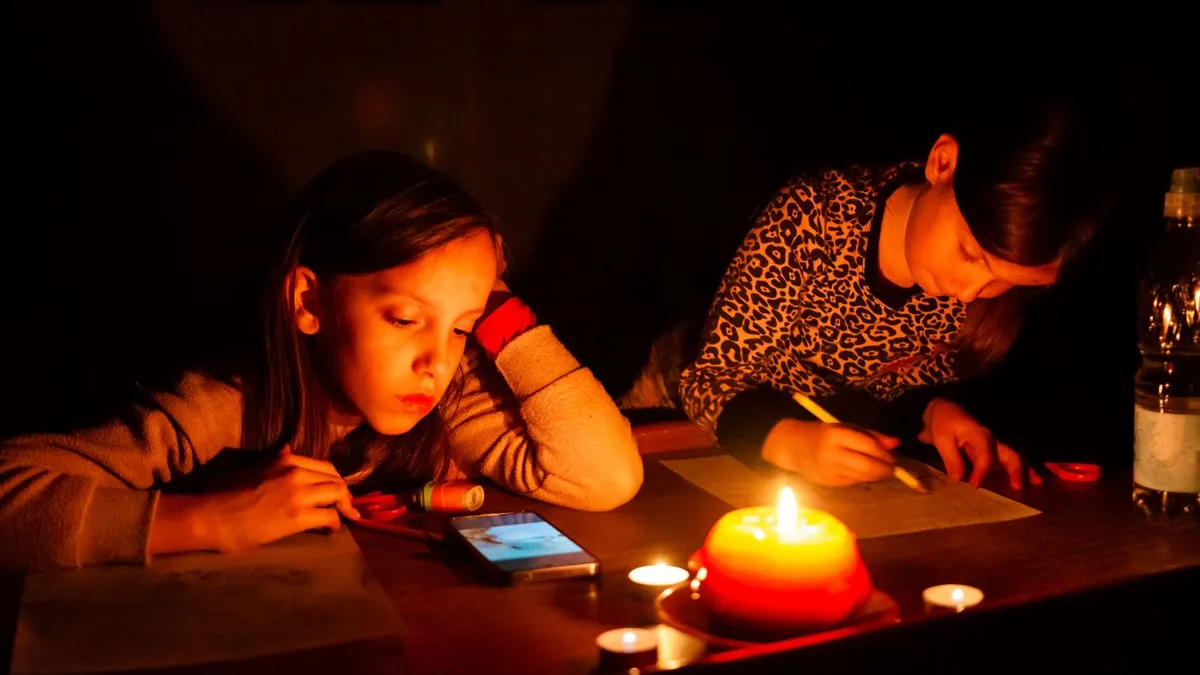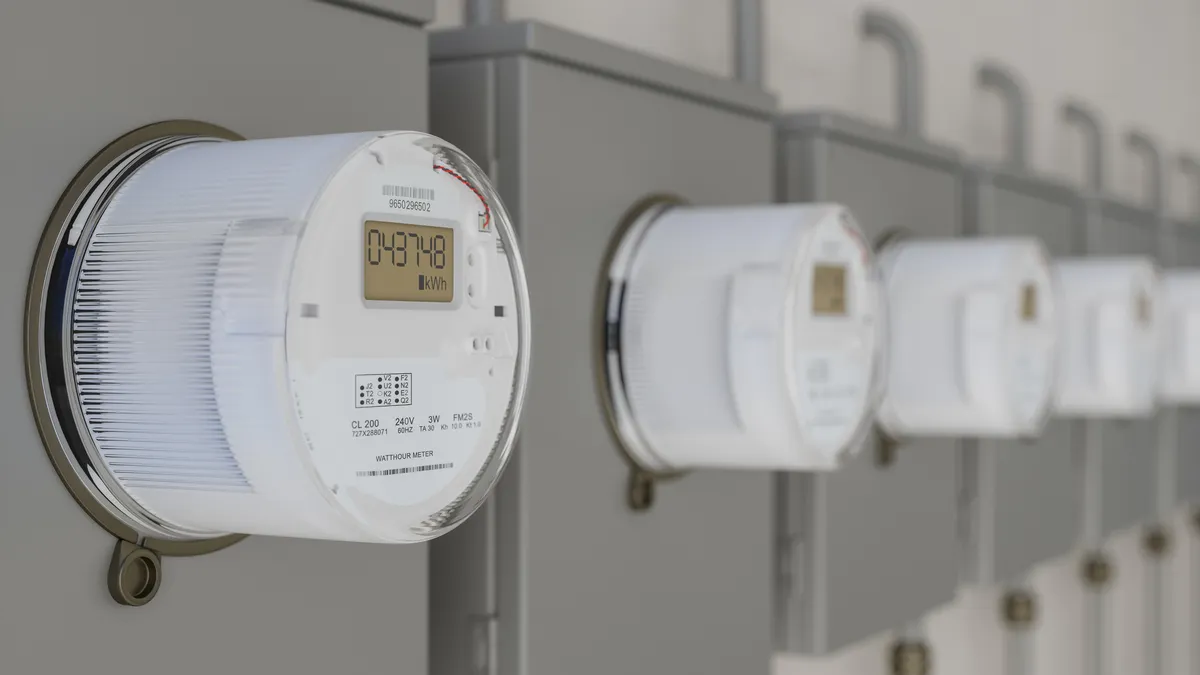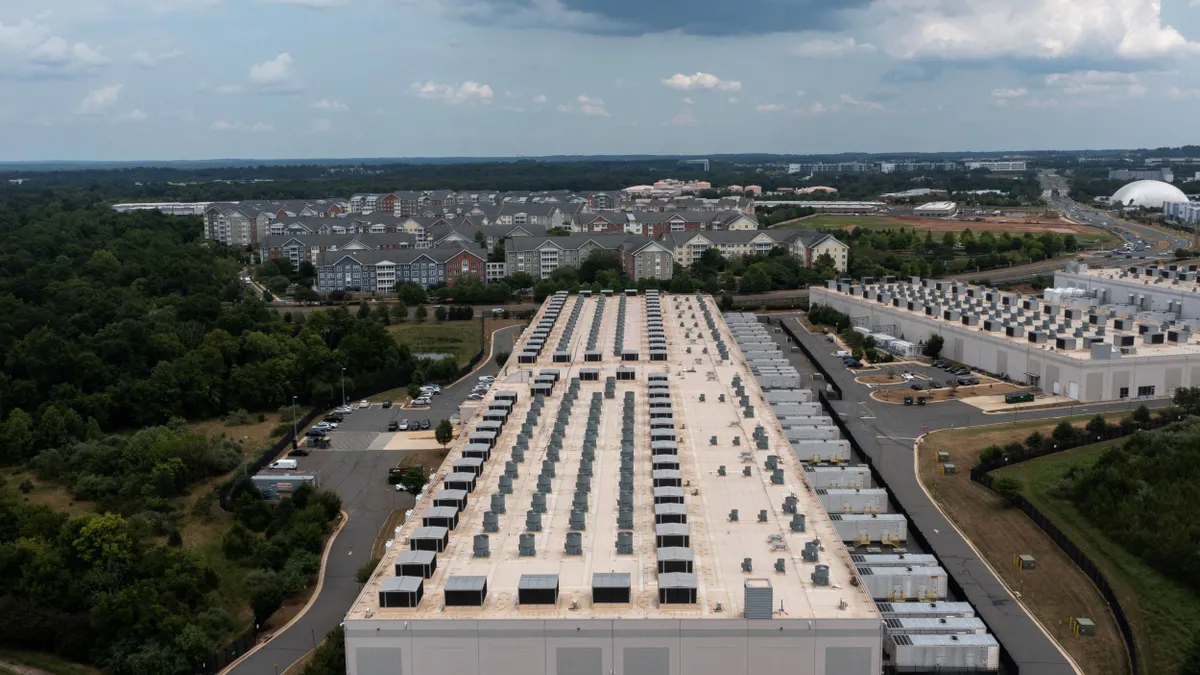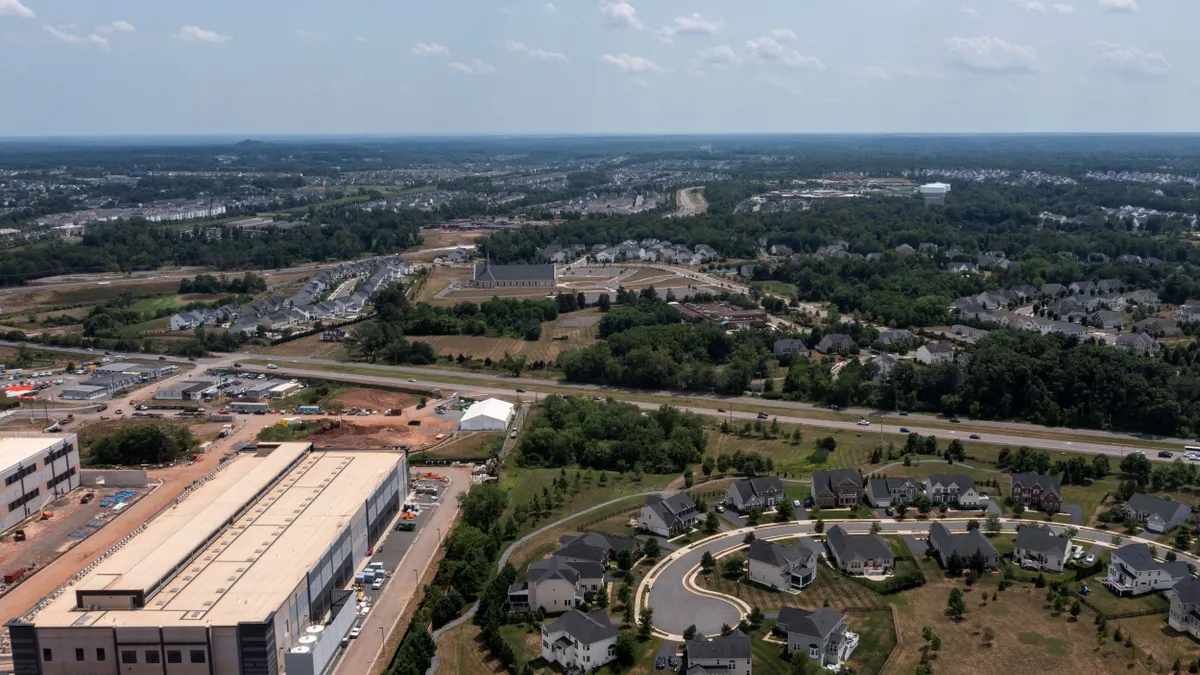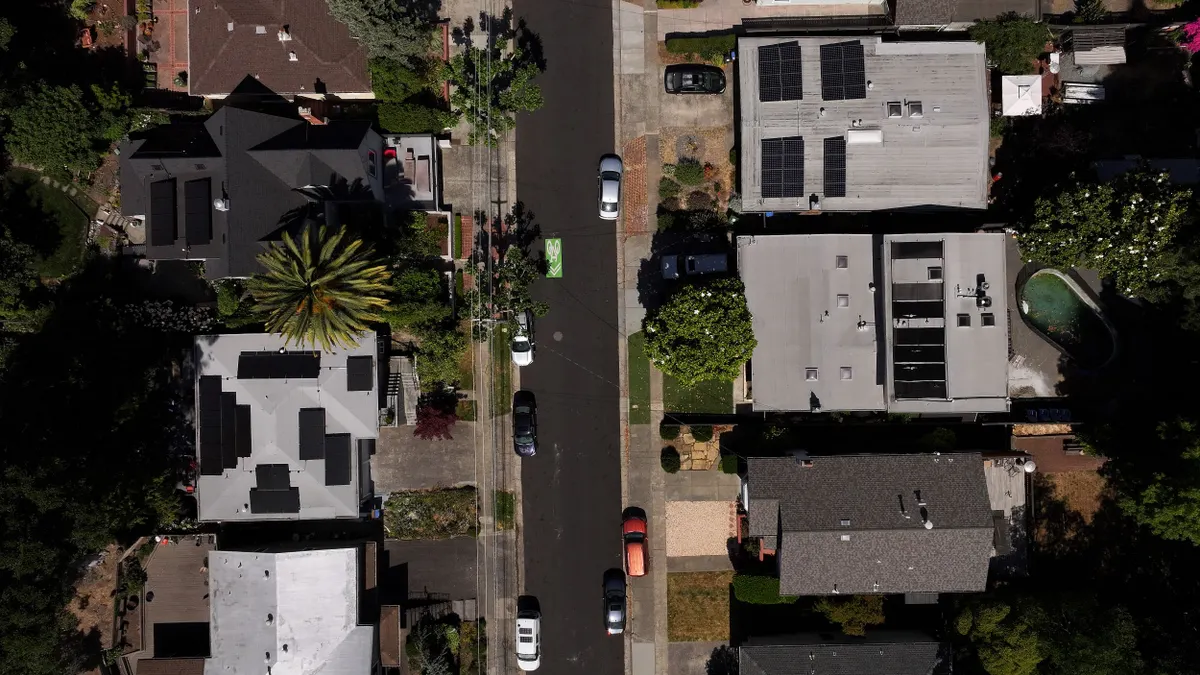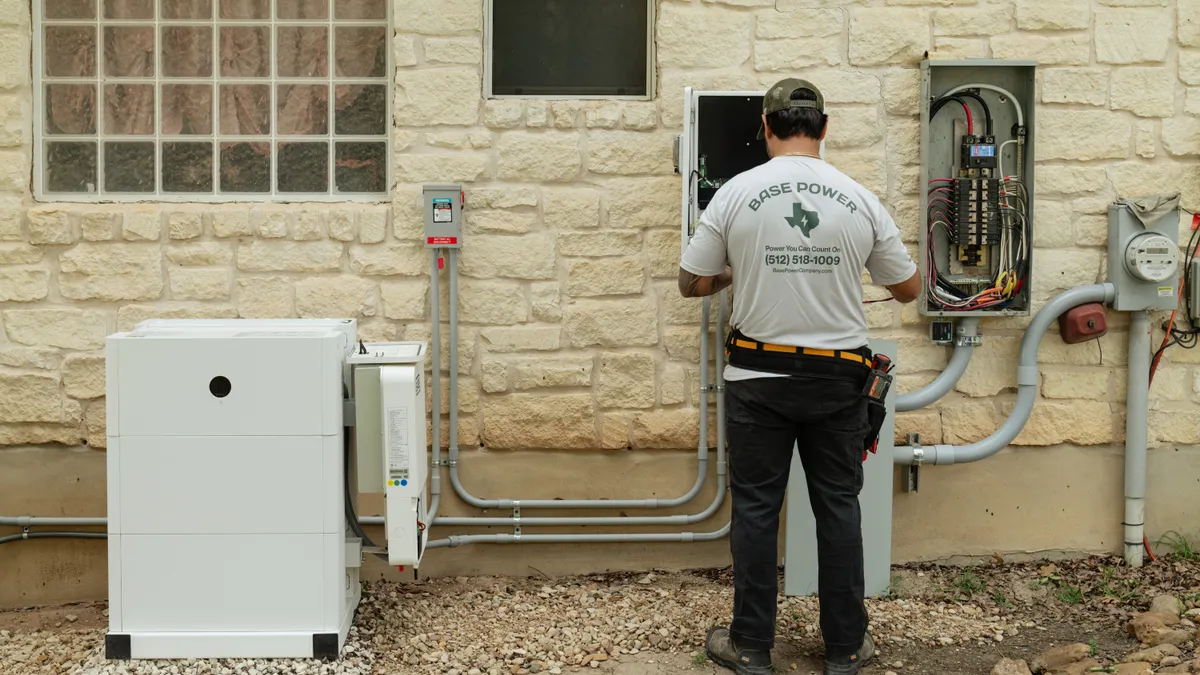The Trump Administration is targeting a slew of energy and environmental regulations and energy efficiency is no exception. The latest example? A Department of Energy proposal that would ease the ability of manufacturers to temporarily avoid testing to determine whether their products meet federal efficiency standards.
It's a "quietly issued proposal that could seriously undermine U.S. energy efficiency standards," according to Andrew deLaski, executive director at the Appliance Standards Awareness Project (ASAP).
There are a variety of reasons that DOE allows manufacturers to apply for interim waivers from testing — some new products can't be tested with existing procedures, or existing tests are inadequate, deLaski told Utility Dive. The current system works relatively well, he said.
But under DOE's proposal, interim waivers would be granted if the DOE failed to act on a request within 30 days.
"Because the recent history of waiver applications indicates that it is difficult for DOE to respond to such requests within 30 days, interim waivers would in many, if not most cases be automatically granted under DOE's proposal," deLaski wrote in a recent blog post.
"It upends the reliability of the regulatory system, if your competitor might be able to self-assign a waiver that says they don't have to comply," he said.
DOE could later determine the manufacturer's waiver application should be rejected, but deLaski notes they would then be given a 180-day grace period before being required to use the uniform DOE test procedure.
"In other words, it would receive six more months to continue selling non-compliant products that unfairly undercut the competition and potentially harm buyers," deLaski wrote. And there will be no guarantee the process would not just begin again with a new application.
While the federal government appears committed to slowing energy efficiency, states and the utility sector have been pushing back.
A war with many fronts
The new proposal is one of several floated by the Trump administration, targeting energy efficiency in many venues. Even popular programs like Energy Star appliance ratings and efficiency standards for light bulbs have been targeted.
"I just don't understand the rationale behind trying to turn back the clock. There aren't many people out there clamoring for outdated light bulbs that use four or five times as much energy," Alliance to Save Energy President Jason Hartke told Utility Dive.
DOE is proposing to reverse a 2017 decision to expand the types of bulbs covered under stronger standards, and efficiency advocates say the decision could mean billions in lost savings for consumers. ASAP says the second phase of light bulb standards, now delayed, would save a typical household about $180 per year by 2025.
"It can be wonky, but the energy being wasted by stalling standards means people are paying more on monthly utility bills and we're emitting more greenhouse gases," Hartke said.
DOE is also considering changes to the "Process Rule" that the agency says would introduce a threshold amount of energy savings that must be achieved by new standards. Efficiency advocates say the changes propose an "arbitrary" requirement of energy savings that new or updated standards must meet, while other changes would make developing those standards more difficult.
And the Environmental Protection Agency even moved to rescind California's authority to set its own emission standards for automobiles, including its electric vehicle mandate.
DOE is also behind on deadlines to update efficiency standards for air conditioners, refrigerators and washing machines, among other appliances, according to the Alliance to Save Energy.
"It's a wide range of consumer and commercial products that aren't getting updated standards, and that means more inefficient products continuing to go out there in homes and businesses, products that will be in use for years," Hartke said.
As of June, DOE has missed at least 18 statutorily-mandated deadlines for reviewing efficiency standards, and more for reviewing test procedures, according to Lauren Urbanek, senior energy policy advocate at the Natural Resources Defense Council's Climate and Clean Energy Program.
Congress "required this review for a reason," Urbanek told Utility Dive in an email. "There are cost-effective savings to be had thanks to technology and manufacturer innovation. Every day that DOE drags their feet means that consumers are paying more than they need to when they use everyday appliances and equipment."
Pushback on rollback efforts
There has been pushback on the Trump administration's proposals and delays.
Dozens of major investor-owned utilities have opposed and urged DOE to rescind its light bulb proposal, which they say would exclude from standards bulbs used in 2.7 billion U.S. sockets.
The U.S. House included in a spending package an amendment to prohibit DOE from finalizing the light bulb rollback, though advocates privately say it the amendment has little chance in the Senate.
And Trump's proposals to slash the budgets of the DOE Office of Energy Efficiency and Renewable Energy, and others, have largely met with resistance in Congress. The much-loved Energy Star appliance program has also been preserved.
More states are likely to be "stepping into the breach" to defend efficiency, deLaski predicts. Five states have already incorporated Obama-era federal light bulb standards into state law, to counter DOE's efforts, he said. And states are moving to set up new efficiency standards for other products.
"We're also going to see legal challenges from the states and others interested in protecting the energy and dollar savings from energy-efficiency standards," said deLaski.
More on the proposed interim waiver changes
DOE is taking comments on the interim waiver proposal until July 15, and will hold a two hour webinar on July 11.
ASAP and several other organizations asked DOE hold a public meeting to explain the proposal and receive input, but deLaski said that request was initially denied. In a follow-up letter to DOE, he said the groups were "stunned."
"We are not aware of any prior case where DOE has refused to hold a public meeting on an important proposed rule," ASAP wrote on behalf of the Alliance to Save Energy, American Council for an Energy-Efficient Economy, California Energy Commission, Consumer Federation of America, Natural Resources Defense Council, and other groups.
DOE ultimately relented, said deLaski, and scheduled the webinar. It is still "short of what DOE typically provides for a significant proposal like this one," he said.
DOE did not respond to multiple requests for comment.
The Federal Register notice of the proposed change says it will "reduce manufacturers' burden associated with the interim waiver application process, provide them with greater certainty, and speed the availability of innovative product options to consumers."
"I can't find a single manufacturer who thinks it's a good idea," deLaski said.
The National Association of Manufacturers did not respond to requests for comment on its position.
"It all adds up to a deliberate effort by the Trump administration to thwart the energy conservation laws," said deLaski. "Congress designed these laws to drive energy savings and they've worked really well on that score."






